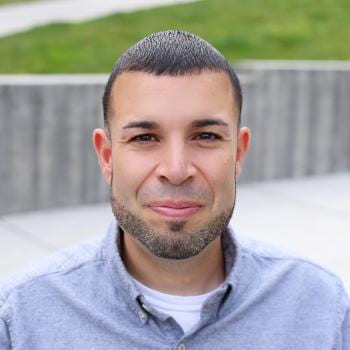We are pleased to announce the following plenary speakers:

Meredith Marra, Victoria University Wellington, New ZealandAbstract - His role kind of transcends the day-to-day work stuff: Navigating culture, gender and professional identity through narrative His role kind of transcends the day-to-day work stuff:
|

Jonathan Rosa, Stanford University, USAAbstract - Unsettling Raciolinguistic Barriers: From Diversity and Inclusion to Abolition and Decolonization Unsettling Raciolinguistic Barriers:
|

Amelia Tseng, American University, USAAbstract - Towards a multidimensional understanding of linguistic identities Towards a multidimensional understanding of linguistic identitiesDiversity is fundamental to the human condition, yet its complexity remains to be fully integrated into language research and teaching paradigms. This talk will review current developments in linguistics and related disciplines to unpack dimensions of diversity which are often rendered invisible in schools and society, focusing on social categories such as race and ethnicity which are “common sense” considers fixed, natural, and homogenous but which in fact are ideological and socially constructed. I support my argument with examples from my own research with Washington, D.C. Latinxs, an internally-diverse population in a highly diverse global city context. In particular, I draw attention to language’s role in signaling social sameness and difference and to tensions between fluid bilingual repertoires and traditional notions of language proficiency and correctness, as speakers of different Latinx backgrounds and immigrant generations use the rich range of language, dialect, and translanguaging resources at their disposal to construct linguistic identities in relationship to the lived and imagined social environment (Tseng 2018 and forthcoming). The talk underscores the fluid, constructed nature of identity and the diversity within minoritized groups which is erased by the imposition of hegemonic and essentialist perspectives (Bucholtz and Hall, 2005; De Fina, 2012; Irvine and Gal, 2009; Rosa and Flores, 2015, 2017). Importantly, it emphasizes the importance of understanding linguistic identities within their complex, multilevel contexts of production and social meaning. Finally, the talk also engages with current debates which similarly problematize named languages and related concepts such as language separation, linguistic purity, bilingualism, and native speakerism as ideological constructs (Erker, 2017; Garcia and Wei, 2014; Heller, 2007; Holliday, 2016). I conclude with a discussion of directions for theory and practice, drawing on current conversations in linguistics, education, and critical studies and considering their implications for research, teaching, and community outreach. |

